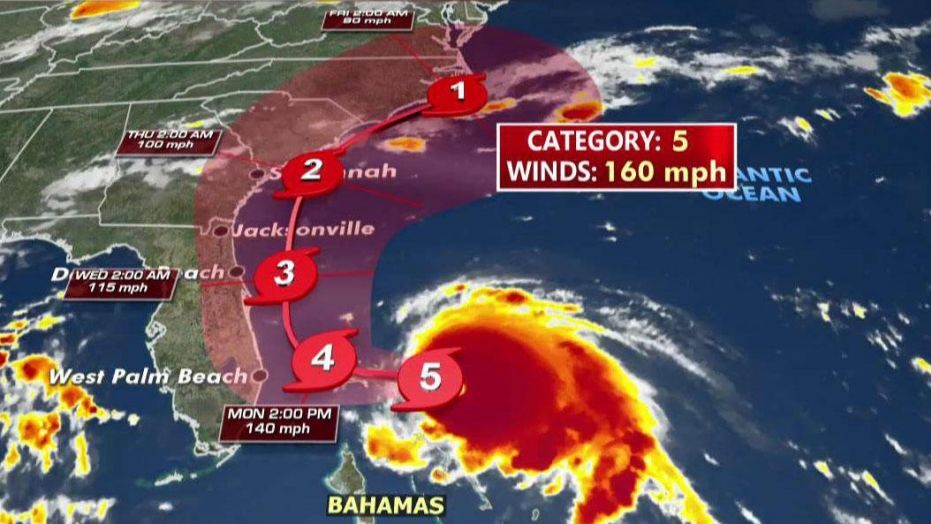
Hurricane Dorian was the most powerful tropical cyclone on record to strike the Bahamas, and is regarded as the worst natural disaster in the country’s history. It was the fourth named storm, second hurricane, and the first major hurricane of the 2019 Atlantic hurricane season. Damage in the Bahamas was catastrophic due to the prolonged and intense storm conditions, including heavy rainfall, high winds and storm surge. Dorian is by far the costliest disaster in Bahamian history, estimated to have left behind an exceptional $7 billion in property damage. Hurricane Dorian then skirted up the Southeastern United States and eventually made landfall in Cape Hatteras, North Carolina.
Insured losses from Hurricane Dorian to the US will be between $500 million and $1.5 billion, according to estimates by risk-modeling and analytics. The estimate reflects property damage and business interruption to residential, commercial, industrial and automobile lines of business. Companies that have operations, significant customers, vendors, and employees in the Caribbean or the Southeastern United States could have their operations significantly interrupted and may have additional accounting considerations as a result of the disaster.
Here are some of the accounting and financial reporting implications of these events.
Financial Statement Reporting and Disclosure Considerations
Companies that incurred losses may need to expand its footnote disclosure to discuss circumstances surrounding the losses, any insurance claims made and any expected insurance reimbursements. Any uncertainties related to the claims should also be disclosed. These considerations are especially important for publicly traded companies since the SEC has in the past asked registrants to expand disclosure to discuss the effect of natural disasters on their operations quantitatively and qualitatively, such as loss of a major supplier or customer.
Assets Impairment Considerations
Were assets damaged or destroyed as a result of the hurricanes? The most commonly affected assets after a natural disaster are fixed assets, inventories and accounts receivable. Writing off these assets may be necessary if they are destroyed.
How about the projected cash flows from certain assets? Are they negatively affected? Companies should consider writing down assets that were damaged and revisit their estimated useful lives.
Loans and Banking Considerations
Financial institutions, especially those that have a substantial amount of loans in the affected areas, should consider the need to increase their allowance for loan losses. In the immediate aftermath of Hurricanes Harvey and Irma, a number of financial institutions waived late fees and extended payment deadlines to their customers. Therefore, special considerations should be given to disclosing loss of revenues.
On the other hand, companies may need additional financing or amend the terms of their existing credit agreements with banks to increase its borrowing capacity. Companies should evaluate whether the amendments represent modification of existing debts, or extinguishment of the existing debts and commencement of new arrangements.
As a result of the negative impact the hurricanes had on companies’ operations, companies may be in violation of their loan covenants – assets as collaterals destroyed or financial covenants not in compliance. This may trigger default and affect the classification of the debt on the balance sheet.
Accounts Receivable and Revenue Recognition
Companies that do businesses with those in the affected areas should consider collectability, write offs or reserve against the receivables. Companies that allow extended payment terms to the affected businesses should consider its effect on revenue recognition (Topic 606) since revenue can only be recognized when collection is probable.
Idle Capacity
Companies may experience below normal production level as a result of power interruption or fuel shortage. When assets are temporarily idle, depreciation should continue. On the contrary, depreciation should discontinue when assets are permanently unproductive.
Insurance
To properly manage the risk losses from natural disasters, companies have insurance policies to cover property, casualty and business interruption claims. When companies believe that reimbursement from insurance is probable, the companies should recognize a receivable for the amount expected to be recovered. However, the amount recorded cannot be greater than the recorded losses. If companies expect to be reimbursed for an amount greater than its recorded losses, the different should be treated as a gain contingency, i.e. recognized only when realized.
For companies that filed claims under their business interruption policies, they would also follow the accounting for gain contingency, i.e. recognized only when realized.
The classification of insurance proceeds in the income statement depends on the nature of the claims. Proceeds should be recorded in the income statement once the gain contingency is resolved. There are not guidance provided for many different types of claims and therefore judgement should be applied.
Insurance proceeds should be presented in the statement of cash flows based on the nature of the item insured. If the proceeds are for damaged fixed assets, it would be an investing cash flow. If the proceeds are for business interruption, it would be an operating cash flow.
Tax Considerations
Since profitability is negatively affected, companies should evaluate whether deferred tax assets are “more likely than not” that they would be realized and whether a valuation allowance is necessary.
